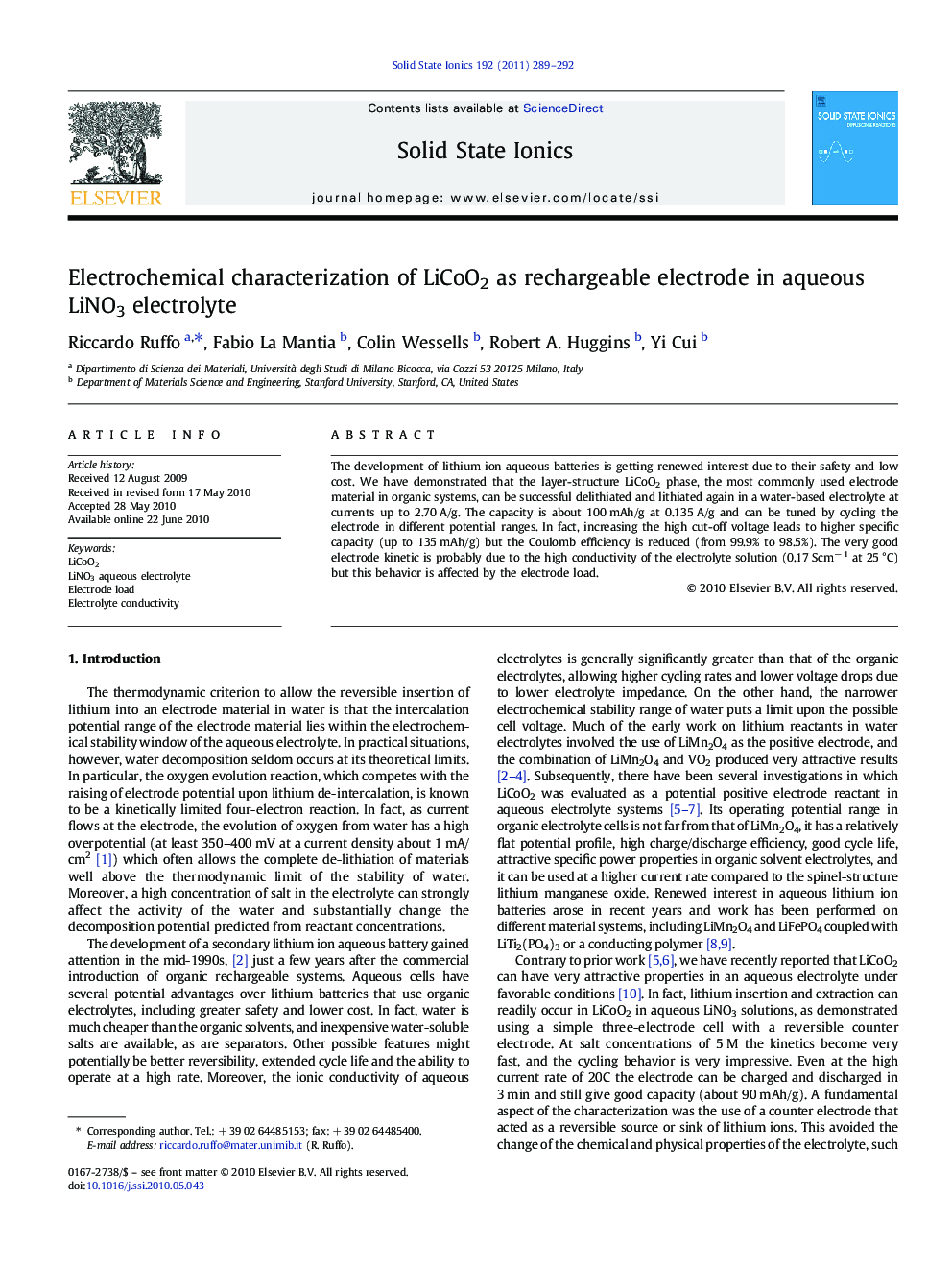| Article ID | Journal | Published Year | Pages | File Type |
|---|---|---|---|---|
| 1296466 | Solid State Ionics | 2011 | 4 Pages |
The development of lithium ion aqueous batteries is getting renewed interest due to their safety and low cost. We have demonstrated that the layer-structure LiCoO2 phase, the most commonly used electrode material in organic systems, can be successful delithiated and lithiated again in a water-based electrolyte at currents up to 2.70 A/g. The capacity is about 100 mAh/g at 0.135 A/g and can be tuned by cycling the electrode in different potential ranges. In fact, increasing the high cut-off voltage leads to higher specific capacity (up to 135 mAh/g) but the Coulomb efficiency is reduced (from 99.9% to 98.5%). The very good electrode kinetic is probably due to the high conductivity of the electrolyte solution (0.17 Scm− 1 at 25 °C) but this behavior is affected by the electrode load.
